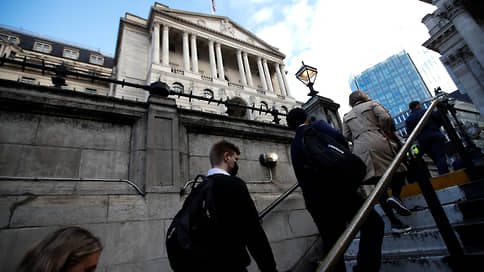Buying instead of selling – Newspaper Kommersant No. 180 (7381) dated 09/29/2022
[ad_1]

The Bank of England has temporarily abandoned its policy tightening and instead of the sale of government bonds promised last week from its balance sheet, on the contrary, it will buy these securities on the market. The move came in response to a sharp rise in required yields on British government bonds, which, in turn, was caused by investors’ fears of an uncontrolled increase in borrowing to finance plans to stabilize energy prices and cut taxes announced by the cabinet of the new Prime Minister Liz Truss.
The revaluation of assets in the financial market has significantly affected the value of British government bonds, and “further deterioration in the situation in this market poses a significant risk to financial stability”, declared on Wednesday, the Bank of England in response to a sharp increase in the required yield on government bonds of the country. On the eve of the yield on such ten-year securities reached 4.5%, while at the end of August it was 2.6%. To reduce the risks of changes in lending conditions for households and companies, the regulator will temporarily buy government bonds – for now, from September 28 to October 14. Purchases will be made in the amount required to “achieve normal market conditions.” After the announcement of the Bank of England, the yield fell to 4.04%.
Last week, the regulator, on the contrary, announced its decision to sell government bonds from its balance sheet to reduce it. Then it was reported that over the next 12 months, the volume of government bonds at the disposal of the Central Bank will decrease by £80 billion and reach £758 billion. Now, sales of securities from the balance sheet will begin no earlier than October 31, while the volume of operations will be maintained.
The surge in UK government debt yields was triggered by a potential surge in borrowing – the issuance of new bonds would be required both to fund an “energy price guarantee” plan (which stipulates that households will pay no more than £2.5 thousand per year for it in over the next two years), and for the “growth plan”, which involves tax cuts and reform of the financial sector (these measures should increase GDP growth to 2.5% per year). Both documents were prepared by the new cabinet of ministers headed by Liz Truss.
The first plan will require financing in the amount of more than £100bn (most of these funds are planned to be raised through the issuance of bonds), the second – £72bn, was estimated by ING Bank. “Investors are worried that the Treasury has actually moved to unlimited borrowing,” experts point out. After the announcement of the plans, the pound sterling fell to a historic low of $1.03, later it strengthened to $1.08.
The Bank of England hopes that energy price guarantees will limit inflation and reduce its volatility.
Price growth in annual terms in August slowed down to 9.9% against 10.1% in July. Price growth is expected to peak in October, when inflation reaches 11%, the figure may remain above 10% for several more months.
Note that the fiscal plan of the new cabinet was criticized by both the IMF and rating agencies. With inflationary pressures high in many countries, including the UK, the fund said it is not recommending large and untargeted measures now “because it is important that fiscal policy does not run counter to monetary policy.” Moody’s has warned that large unsecured tax breaks have a negative impact on the UK’s creditworthiness. “A confidence shock, driven by market concerns about the soundness of the government’s fiscal strategy, which has led to structurally higher financing costs, could further weaken the UK’s borrowing availability even more irreversibly,” the agency said.
[ad_2]
Source link






